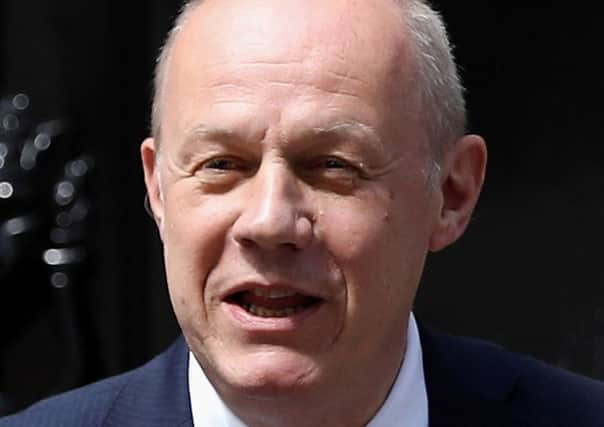Jeff Salway: Triple pensions lock faces early retirement


Questioning the future of universal benefits and the so-called “triple lock” on the state pension was, however, a fairly big hint that the Tories think the next general election is in the bag.
During the Cameron-Osborne years the notion of curbing pensioner benefits was never on the table. It was a demographic courted relentlessly by Osborne, while working age support was slashed with often devastating consequences.
Advertisement
Hide AdAdvertisement
Hide AdNew work and pensions secretary Damian Green claimed the review of state and pensioner benefits reflected concerns over intergenerational fairness. That’s a misrepresentation. It’s about saving money. But the fact that “intergenerational fairness” was even recognised by a Conservative minister is progress. It also implies the government believes pensioners are more likely to accept changes if they are framed as helping address generational inequality.
I’m not sure that’s how they’ll see it, but it is clear that younger generations are being systematically disadvantaged. The latest annual Intergenerational Fairness Index, published last month by the Intergenerational Foundation (IF), made for bleak reading. It pointed out that rising housing costs, lower wages, low job security, higher student debts and cuts to maintenance grants and housing benefit have created enormous financial pressures for today’s twentysomethings.
The recent debate as to whether property or pensions is the best way to fund retirement must seem like a cruel joke to younger workers. Retirement is more of an “if” than a “when” for many people in work today. Buying a home is a remote prospect for those without affluent parents, while the guaranteed final salary pensions enjoyed by many of today’s retirees are disappearing from the private sector. The IF estimates that private firms spend £22,400 a year more on pensions for older members, typically in final salary schemes, than on younger members in defined contribution schemes.
The cost to each worker of paying for today’s state pension has risen to £2,846 over the past year, according to the IF index, while the cost of public sector pension liabilities jumped 12 per cent to nearly £44,000 per worker. Automatic enrolment may have pushed up the number of younger people saving into pensions, but an ageing population means the burden on them will only increase.
It’s easy to make baby boomers the scapegoat here, yet it’s not that simple. The problem is that politicians only deal in simple solutions. The triple lock ensures state pension payments increase annually by the higher of 2.5 per cent, earnings or inflation – hard to justify when earnings, inflation and interest rates are so low.
But it’s not just about pensions. We can go so much further, not least by reforming taxation and welfare support so they are based on means and needs respectively, rather than age. The Work and Pensions Select Committee inquiry into intergenerational fairness may produce proposals along those lines, although they’ll inevitably end up in the long grass. The triple lock will go and universal benefits are under threat, but neither Westminster nor Holyrood has the appetite for any real reform that’s not in their short-term interest.